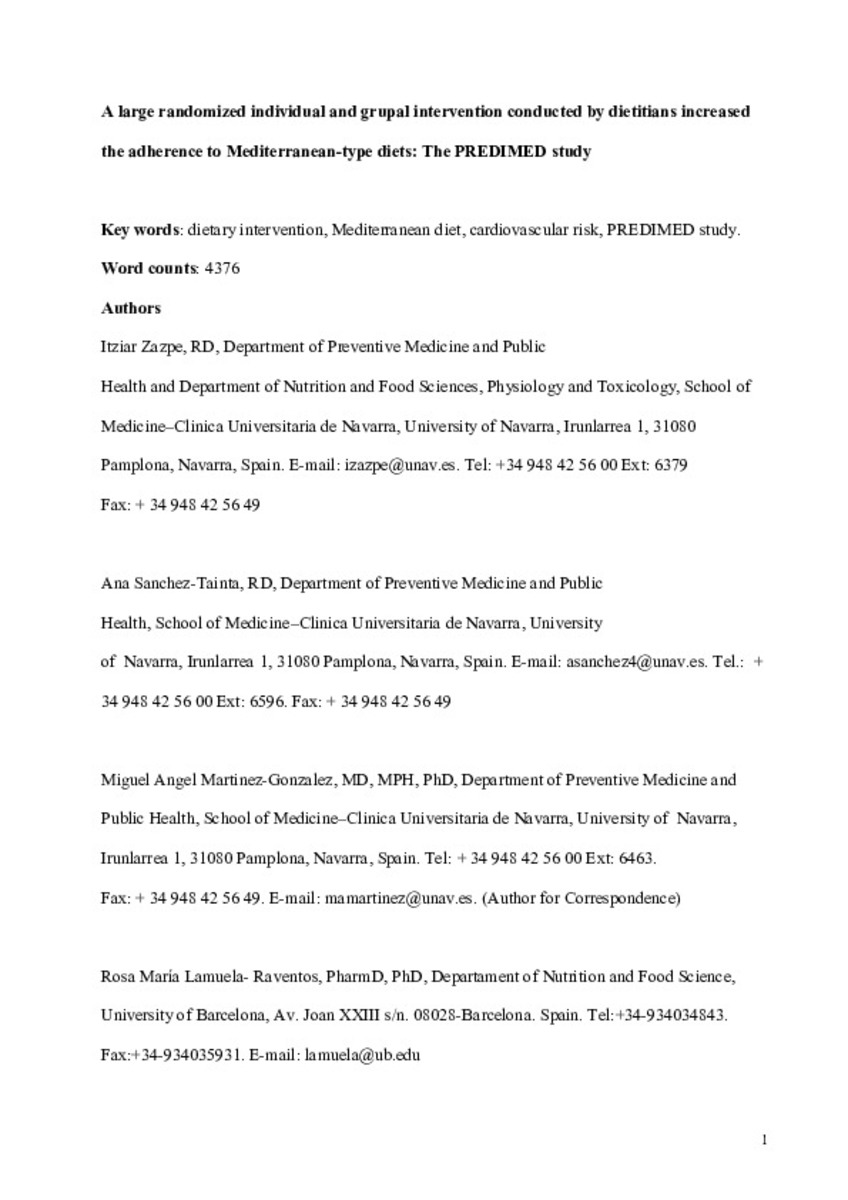A large randomized individual and grupal intervention conducted by dietitians increased the adherence to Mediterranean-type diets: The PREDIMED study
Keywords:
Materias Investigacion::Ciencias de la Salud::Nutrición y dietética
Dietary intervention
Mediterranean diet
Cardiovascular risk
PREDIMED study
Citation:
Zazpe I, Sanchez-Tainta A, Estruch R, Lamuela-Raventos RM, Schroder H, Salas-Salvado J, et al. A large randomized individual and group intervention conducted by registered dietitians increased adherence to Mediterranean-type diets: the PREDIMED study. J Am Diet Assoc 2008 Jul;108(7):1134-44; discussion 1145.
Statistics and impact
0 citas en

0 citas en

Items in Dadun are protected by copyright, with all rights reserved, unless otherwise indicated.








